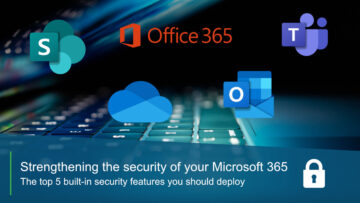In our previous article we explored and debunked some of the common myths that business owners have heard surrounding Cloud computing, most of which have created unnecessary apprehension around its implementation.
In the following article we will explore some of the abbreviations that professionals use when talking about the Cloud. We hope that this article will prepare you for a conversation with a Cloud provider, by the end of the article you will be equipped to determine what course of action is right for you, your team, and the organisation as a whole. Knowing what the jargon means will allow you to not only ensure the offering from prospective suppliers is sufficient, but also to find value in a tool that some have cast aside before even giving it a chance.
The technical jargon explained
IaaS – Infrastructure-as-a-Service
Infrastructure-as-a-Service is computing framework that is provided over the internet. Upon choosing IaaS as your choice of Cloud service, your chosen provider will supply and manage the infrastructure that your software resides in, on a subscription basis. If you are certain IaaS is the right choice for you, it is highly recommended that you involve a team of IT professionals to help you every step of the way from installation to configuration – they will also take a lot of responsibility in the management of it, taking stress off of you or your teams’ shoulders in the long term. It isn’t easy to understand – even for those familiar with tech – but it needs to be done right to ensure you are using the Cloud not only as productively as possible but, even more importantly, as securely as possible too.
SaaS – Software-as-a-Service
Software-as-a-service is the delivery of applications, and the storage of data within those applications, as a contractually paid service. Also, the right provider will manage the security and back-up of that data too standard within the agreed price. SaaS is by some way the most common choice of Cloud service – some of the most popular are household names; Microsoft 365, Google Workspace, and Xero Accounting to name just a few. SaaS takes the stress and arduous process of managing your software and hardware out of your hands, and for those with little technical prowess, not only is this stressful but this can be very time consuming and for some an impossibility.
Cloud applications
A Cloud Application is software that you access online instead of installing and accessing it on individual computers. Using a Cloud Application saves you time and money but offers reduced services in comparison to installing it directly.
Cloud storage
Because It’s easy to guess doesn’t deduct from its importance. Cloud storage is a storage facility – of which the main aim is to irradicate the large storage and management requirements that were necessary traditionally for individual computers and servers, which made them clunky and hard to manage. When you save your data to the Cloud your data is stored in remote servers to be accessed directly from there.
This is what makes remote working possible, your team both in the office and otherwise have seamless access to all of the data they need to complete their job roles to the highest possible standard.
We now know what the Cloud is, have debunked some of the myths surrounding it, and have taught you some of the jargon that professionals will use when referencing it in a conversation – still, you may be asking yourself, ‘what are benefits of Cloud computing to my business?
The business benefits of the Cloud
Collaboration
The pandemic forced business owners to adopt new ways of working that barely any of us where comfortable with. Teams were shattered overnight, collaboration was impossible with teams spread out across the country, or – depending on the size of the business – all over the world. The Cloud makes it possible to achieve the levels of collaboration that you achieve in office, in fact it allows you to exceed them! With the Cloud your team can be anywhere on the planet with an internet connection and can collaborate with each other, your in-house team, suppliers, and any other entities that they may need to be in contact with.
There are apps that utilise the full abilities of Cloud computing – Microsoft Teams for example, with its features your team can communication from anywhere, seamlessly. The Cloud has allowed us to achieve levels of collaboration that we previously couldn’t have imagined, our teams are more connected than ever.
Back up & continuity of business
We do everything in our power to avoid them – but unfortunately business defining disasters do happen. So, there is no point pretending that one will never happen, because in all likelihood it will – when it does you need to have an efficient way of accessing all of your vital business data rapidly, and the Cloud offers exactly that. The Cloud allows you to continue with business-as-usual no matter the circumstances – if you have a business defining disaster, a gas leak, flood, or fire for example, there is no reason you can’t transfer your system another location with an internet connection, access the Cloud, and it’s like nothing has happened.
Scalability
The Cloud offers the easiest infrastructure to scale, it can be extremely frustrating when you need more from your tech but already know it isn’t capable of keeping up with your business needs. Recent times have changed business owners’ attitudes in many ways, most prominently is their attitude to planning in advance, most simply don’t anymore – no one has known what is happening day to day let alone what is happening over the next few months. The Cloud allows you to make the call as and when scaling is necessary – this gives you a huge advantage over your stagnant competition that must stay at the same capacity they are now regardless of their successes and failures.
Reduced cost
The capital investment required before you can start using the Cloud is far less than with other forms of IT. When using the Cloud, you only pay for what you are using – which in turn makes it incredibly cost effective. You can negotiate your monthly investment with your provider if you aren’t using or achieving value from the features in your original plan.
We highly recommend Cloud computing. Your organisation – regardless of its size and sophistication – can massively benefit from its capabilities. We hope that these articles have helped you realise just how beneficial an adoption of Cloud computing can be for you, your team, and your business. But, if you are still unsure, please don’t hesitate to contact us for expert IT consultancy and support in making your decision.
Communication made easy
Since 2002, Echelon Technologies has been a leading provider of IT support and consulting, focusing on small and medium-sized businesses in the Greater Phoenix area. We have helped hundreds of companies, and thousands of users, to increase productivity and profitability by making IT a streamlined part of their operations. We equip our clients with customized technology solutions for greater operational value and to reduce risk. Please don’t hesitate to get in contact and see what we can do for you.



